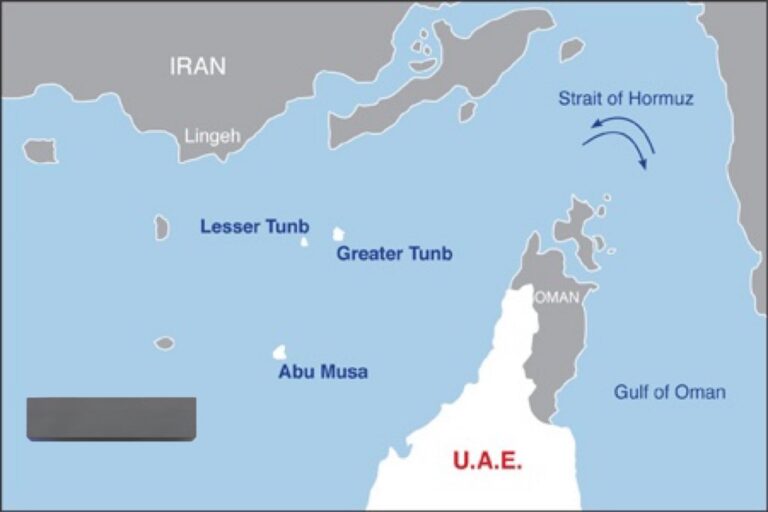Syria supported a declaration at the Arab League summit in Bahrain thispromoting “the sovereignty of the United Arab Emirates over its three islands” in the Gulf, referring to Abu Musa, Lesser Tunb, and Greater Tunb.
Iran claims and has controlled these islands since 1971, seizing them as the United Kingdom withdrew from the area and the UAE declared independence.
The Arab League statement is nothing new, but Syria supporting it this year raised some eyebrows in Iran. Damascus was only readmitted into the League in May 2023 after a 13-year expulsion over its brutality in the civil war.
Iran has had strategic ties with Syria stretching back decades. Syria was one of the few countries to support Iran during the bloody Iran-Iraq War (1980-88). More recently, Iran gave decisive support to embattled Syrian President Bashar al-Assad in his country’s civil war (2011-), deploying militiamen and providing billions of dollars to prop up Damascus.
Without Iranian backing, alongside Russia’s decisive 2015 military intervention, Assad may have lost power. Therefore, some in Iran were irritated when Damascus sided against Tehran in this longstanding territorial dispute with Abu Dhabi.
State media in Iran denounced the move. Some newspapers charged that Damascus disregarded the historical facts, which it claims demonstrate Iran’s rightful claim over the strategic islands near the narrow Strait of Hormuz.
Despite such public denunciations, the incident isn’t likely to cause any significant rift in Iran-Syria relations.
Damascus realising that if they want to maintain constructive relations with the League, it’ll have to conform to overwhelming popular proposals like the status of Abu Musa.
Syria also recognises that this won’t harm Syrian-Iranian relations either. Tehran is likely to interpret this as symbolic and part of Syria’s normalisation process with the Arab world rather than a drift from Iran’s more important orbit.
Syria has extended recognition to Russia’s universally unpopular and unrecognised territorial claims to the Crimean Peninsula in Ukraine and South Ossetia in Georgia.
Recognising Iran’s claim to Abu Musa and the Greater and Lesser Tunbs would prove much more politically complicated for Damascus.
For Assad, recognising that Crimea belongs to Russia is not analogous to recognising that the islands belong to Iran.
For a Baathist, Arab nationalist country to recognise that the three islands claimed by the UAE are Iranian would undermine everything that Assad claims to stand for. Iran spent billions of dollars and sent many soldiers to save his regime from collapse. so Assad must stand by his Arabism. Assad’s pan-Arabism at play on this issue.
Syria still has a pan-Arab political ideology that backs the UAE’s claims to Abu Musa as part of a historical legacy. Switching over to back Iran’s claims would undermine Damascus’s (claims that it is a steward of pan-Arabism.
The reality is that what Syria says on the issue won’t change the status on the ground, given that Iran has shown no interest in negotiating the final status of these islands and the UAE lacks the capabilities to take them back by pressure or force.
Assad no longer needs Iran as much as he did earlier in Syria’s civil war.
Syria needs the Gulf Cooperation Council and Arab League more. Thus, this position will be received very poorly in Iran and also humiliate the Iranian leadership, which invested so much in its ties with Damascus.
“Syria is an anti-Western and pro-Russian position and doesn’t care for relations with Ukraine or Georgia, so it is not surprising that it would recognise South Ossetia and Russia’s annexation of Crimea. But it now values its relationship with the GCC and Arab League, which is why it would never support Iran’s claims to Abu Musa.
While Syria gained readmission into the Arab League and re-established diplomatic relations with the UAE and Saudi Arabia, two leading GCC states, issues of contention remain between it and these Arab states. Syria’s continued export of the illicit Captagon drug across the Middle East, which the GCC hoped reviving ties would compel Damascus to curtail, remains a contentious issue.

More on this story: Pro-Iranian proxies export Captagon as hybrid war weapon
It’s highly likely Assad is thinking about the sensibilities of the Arab League nations and eager to reassure fellow Arab leaders that Syria remains part of the Arab family. Syria’s links with the UAE have been key in determining its orientation. The UAE has excellent international links, and a core GCC position.
For a key GCC country to rebuild links with Assad and help him back into the Arab League is important, and the UAE has done that for the past four years. Assad values this relationship very much and also knows that Iran doesn’t have a lot of choices.
Iran does not want to fight a major war with Israel via Syria, and neither does Syria itself. Iranian forces remain key to keeping Assad in power. So, there’s not much room for Syria to reduce Iranian influence in the near term to address this constant Israeli covert war in its borders.
Syria wants to signal that it wants closer and deeper relations with the Arab world.
Assad doesn’t want to get his country into a fight with Israel that could prove lethal to him,”. He also doesn’t need the IRGC anymore as the war is in a stalemate, and there is no chance of any opposition groups marching to Damascus now. So, All of this is context to reduced reliance on Tehran.





